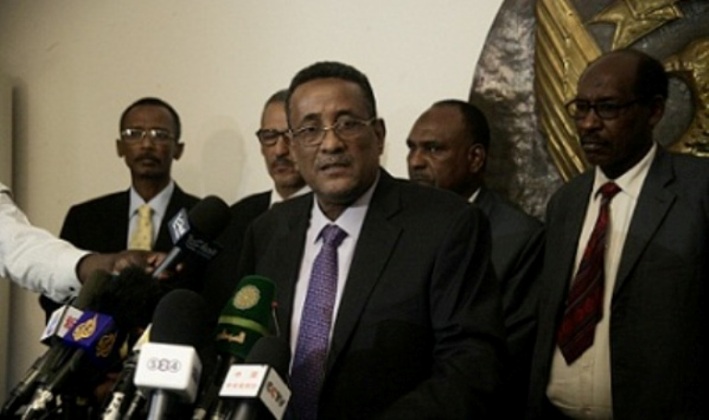Sudan’s austerity measures meant to address impact of sanctions and civil war: Official

November 12, 2016 (KHARTOUM) – Sudan’s Presidential Assistant and Deputy Chairman of the ruling National Congress Party (NCP), Ibrahim Mahmoud Hamid, said the recent economic measures are part of broader reform efforts to counter effects of economic sanctions and civil war.
Sudan has been under American economic and trade sanctions since 1997 for its alleged connection to terror networks and remains on the U.S. list of state sponsors of terror.
Also, the Sudanese army has been fighting Sudan People’s Liberation Movement/North (SPLM-N) rebels in South Kordofan and Blue Nile states since 2011 and a group of armed movements in Darfur since 2003.
Earlier this month, Sudanese government lifted fuel subsidies and increased electricity price in a bid to stop the surge in inflation and control the fall of Sudanese pound in the black market.
Hamid, who addressed a meeting of the NCP’s woman sector on Saturday, said these economic measures “comes to support the weak segments of the society and mitigate the effects of economic reforms”.
He pointed that the government would give further attention to education, health, water and production in the coming period, saying “our objective is to establish a government of national concord that seeks to build the nation and reform the political and economic life”.
Meanwhile, Hamid told the pro-government Sudan Media Center (SMC) Saturday that the economic measures aren’t inconsistent with the recommendations of the national dialogue’s economic committee, saying these measures “will put the economy on the right track”.
He stressed that these measures were agreed upon among the NCP and its partners in the broad-based government, saying these measures would increase state’s financial resources and enhance production and productivity.
Last week, the largest partner in Sudan’s government, Democratic Unionist Party (DUP) led by Mohamed Osman al-Mirghani criticized the recent rise of fuel and electricity prices, saying it was not consulted in the decision.
The presidential aide added that the partial floating of the Sudanese pound would open the door wide for restoring the industrial sector and covering the internal deficit.
Last week the Central Bank of Sudan (CBoS) introduced an incentive policy and increased the exchange rate in commercial banks and exchanges by 131%. As a result, the U.S. dollar exchange rate went up in banks to 15.8 SDG in comparison with to the official rate of 6.5 SDG.
As a result, the U.S. dollar hit another historic high against the pound on the black market settling at 17.6 Sudanese pounds on Friday compared to 15.6 pounds last week when the CBoS introduced its new policy.
Hamid underscored that the government would continue to subsidize the poorer segments via the social and health funds, pointing they will increase the minimum capital for micro-finance.
(ST)
